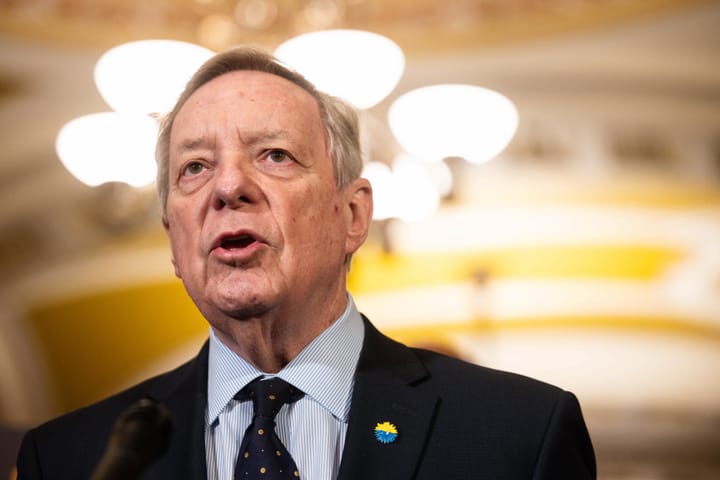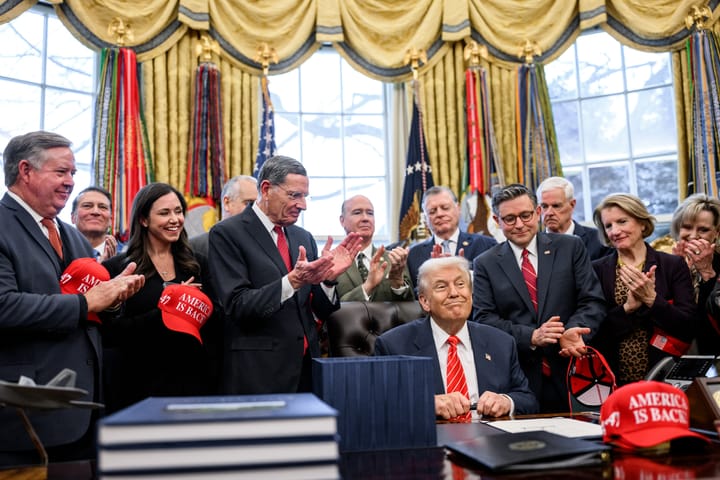A bill that aims to reduce credit card “swipe fees” has long been stuck in Congress, where the bipartisan legislation is opposed by the formidable banking industry lobby. Visa and Mastercard dominate credit card processing, according to research firm the Nilson Report, with control of roughly 80% of the market.
This week, the Credit Card Competition Act (CCCA)’s primary sponsors, Sen. Richard Durbin (D-Ill.) and Sen. Roger Marshall (R-Kans.), introduced it as an amendment to the GENIUS Act, the major stablecoin bill that the Senate recently advanced in a procedural vote. The move sets up a high-stakes lobbying battle in the weeks ahead: the two giant credit card companies and big banks strongly oppose the CCCA, while retailer groups support the amendment.
To stymie the CCCA again, industry group the Electronic Payments Coalition has been ramping up its influence spending—not only in its Senate lobbying, but also with a $1 million donation to the Trump Vance Inaugural Committee early this year.
On May 20, Marshall and Durbin introduced the text of the CCCA as an amendment to the GENIUS Act, a regulatory framework for digital assets known as stablecoins that has the support of Republican congressional leaders. The day before, 16 Senate Democrats joined most Republicans in advancing the crypto industry-supported bill. The GENIUS Act is expected to receive a Senate vote on final passage after the Memorial Day recess.



